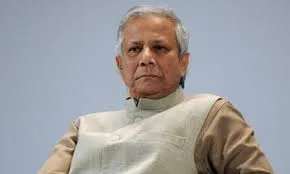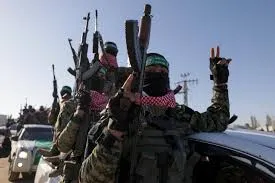Bangladesh has been shouldering the immense burden of over 1.2 million Rohingyas from Myanmar since 2017, with no hope of their repatriation in sight. Meanwhile, the situation in Myanmar is rapidly deteriorating. The Arakan Army, an ethnic armed organization and the military wing of the United League of Arakan (ULA) based in Rakhine State, is steadily capturing territory from the Myanmar Armed Forces. This escalating conflict not only threatens to exacerbate the humanitarian crisis but also poses a direct threat to Bangladesh. The increasing aggressions by both the Myanmar military and the Arakan Army are causing significant concern over the security of St Martin’s Island and the potential spillover of violence into Bangladesh. The volatile situation demands urgent attention and strategic action from Bangladeshi policymakers to safeguard national security and regional stability.
Recently, the Associated Press, quoting residents, a local activist group, and media reports, stated that Myanmar’s military has been emptying villages on the outskirts of the capital of the western state of Rakhine as part of an evident effort to defend against expected attacks by a powerful rebel group that has captured most of the surrounding area.
In my opinion, such actions by the Myanmar military indicate a massive crackdown targeting the Arakan Army as well as other separatist groups such as the Arakan Rohingya Salvation Army (ARSA). This could result in Bangladesh facing another influx of Rohingyas who would be forcibly driven out from Rakhine State.
According to media reports, Rakhine has already turned into the hotspot of Myanmar’s ongoing nationwide civil war, where pro-democracy paramilitaries and ethnic minority armed groups, including the pro-Caliphate Arakan Rohingya Salvation Army (ARSA), are fighting against the country’s military junta with the goal of breaking away the entire Rakhine State and transforming it into an autonomous region. A key issue that will eventually arise is whether an autonomous Rakhine State would allow Muslim Rohingyas to regain their citizenship rights, thus paving the path for the return of over 1.20 million of this ethnic community from Bangladesh.
Counterterrorism and counter-insurgency researchers share similar opinions, stating that the Arakan Army, with over 30,000 soldiers representing the state’s majority Buddhist Rakhine, denies the rights of Rohingya Muslims as citizens of Myanmar and aims to force these ethnic Muslims to leave the country and take shelter in neighboring countries, especially Bangladesh and India.
The ongoing fighting between the Myanmar military and the Arakan Army has been gradually intensifying, putting thousands of Muslim Rohingyas in a vulnerable situation. Meanwhile, Bangladeshi authorities have clearly stated that they will not allow any additional Rohingyas to cross the Naf River and enter the country, as it is already overburdened with over 1.20 million Rohingyas who were given shelter on a temporary basis in 2017.
Pro-Rohingya media reports say that fighting between the Myanmar military and the Arakan Army (AA) has escalated in the western state of Rakhine in recent days, putting thousands of mostly Muslim Rohingyas who live in the area at increased risk.
Meanwhile, both the Myanmar Army and the Arakan Army have been regularly shooting at vessels journeying between Cox’s Bazar and St Martin’s Island. They have also been firing at members of the Border Guard Bangladesh (BGB). When local journalists drew the attention of Bangladesh Home Minister Asaduzzaman Khan to this extremely disturbing scenario, he said that Bangladesh has conveyed its concern to the Myanmar military and Arakan Army with a strong note that Bangladesh will retaliate if they fire into Bangladeshi territory further.
“Otherwise, we will respond to their firing. If we are attacked, we will respond to that attack”, he added.
Kamal said, “Myanmar has some internal crises and the country has different ethnic groups. There are conflicts among them. So far, we have heard that the Arakan Army has grabbed many areas of the Arakan State. For this, many members of the Border Guard Police (BGP) of Myanmar have fled and come to Bangladesh.
“Occasionally, by mistake, they [Myanmar military or Arakan Army] have opened fire on our Border Guard Bangladesh (BGB). We have conveyed our concern to them. They said if we clearly display the Bangladeshi flag on our vessels, no one will fire at them”, Asaduzzaman Kamal said.
In my opinion, the Bangladeshi minister has tried to downplay the situation for two main reasons. Firstly, there is a lack of national unity in the country because of extreme rivalry among political forces, where people have fallen into the trap of such disturbing polarization. Secondly, due to Bangladesh’s current acute economic crisis, policymakers in Dhaka are unwilling to become involved in any major conflict or even war with Myanmar, which in some cases might be considered a sign of weakness or nervousness by both the Myanmar military and the Arakan Army.
To neutralize any risk of a fresh Rohingya influx or an attempt to invade St Martin’s Island by the Myanmar side, policymakers in Bangladesh need to formulate urgent strategies and initiatives instead of burying their heads in the sand like an ostrich and waiting for the deluge to take place.
In my view, the Bangladeshi minister is downplaying the gravity of the situation for two primary reasons. First, the nation is deeply fragmented due to intense political rivalries, resulting in a dangerous polarization among the populace. Second, the severe economic crisis gripping Bangladesh has made its policymakers hesitant to engage in any significant conflict or potential war with Myanmar, which could be perceived as a sign of weakness or apprehension by both the Myanmar military and the Arakan Army. To prevent a new influx of Rohingya refugees or an attempt to seize St Martin’s Island, Bangladeshi policymakers must urgently devise and implement robust strategies. Ignoring the threat and hoping it will dissipate is a perilous approach that the country cannot afford.
Salah Uddin Shoaib Choudhury is an internationally acclaimed multi-award-winning anti-militancy journalist, writer, research-scholar, and Editor, Blitz, a newspaper publishing from Bangladesh since 2003. He regularly writes for local and international newspapers.









